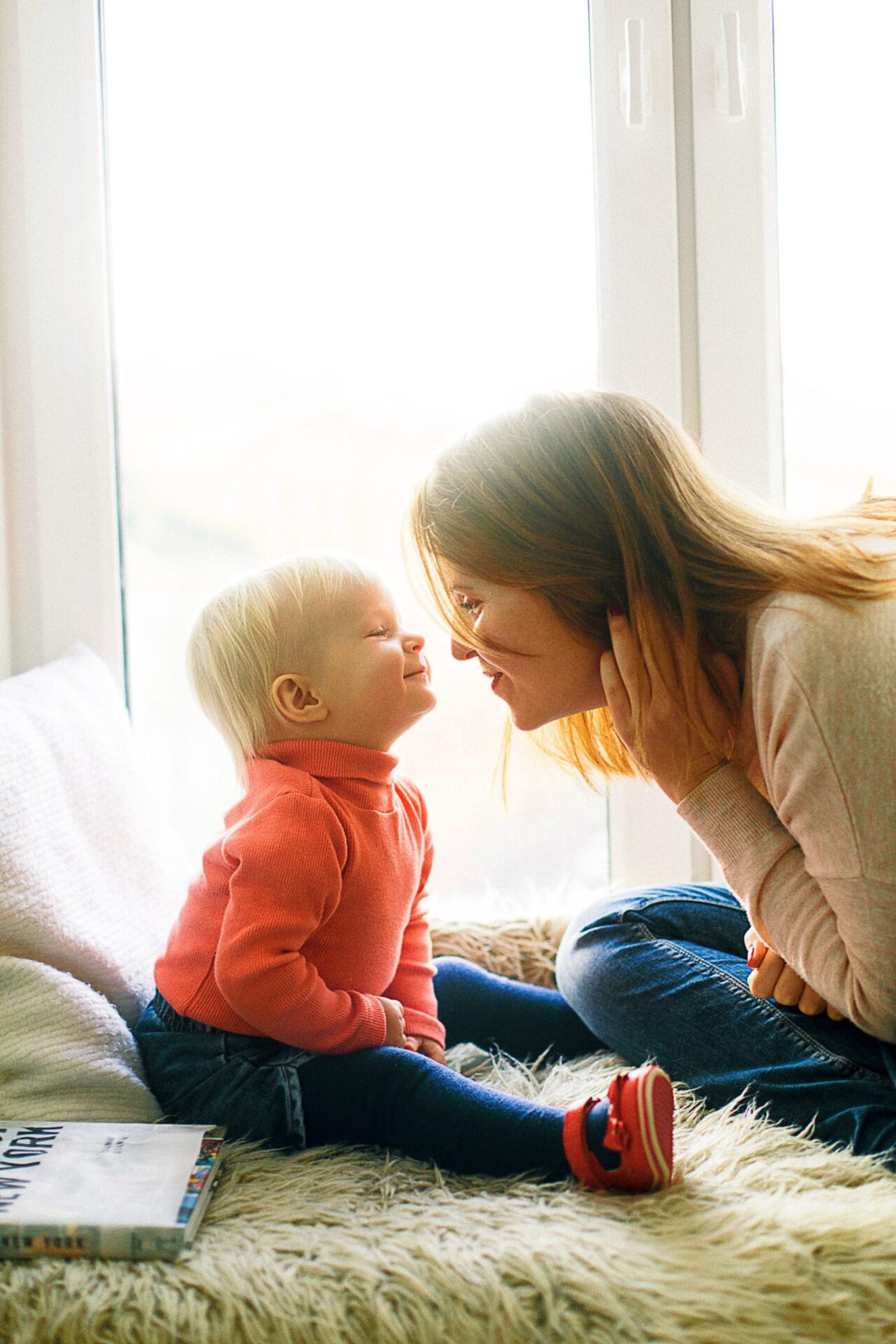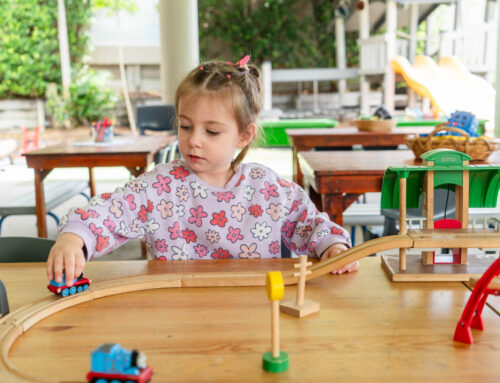By Emma Thomas – Full-time mum to a one-year-old, part-time blogger and writer, with a background as a Kindy Teacher/Director
Have you had the experience of hearing your child say something and realising that they are echoing you or another adult in their life? The language that we use around our children has a big impact on their lives. The words that we use are shaping their inner voice and their perception of the world.
At just 16 months old I am noticing how much my daughter is listening to my conversations. The other day my husband and I were talking about our plans for the weekend, including going to see family. Suddenly my daughter looks up from where she is playing and starts exclaiming, ‘Nana, Nana! Papa, Papa!’. We weren’t talking to her and didn’t realise that she was listening, but she was! As children get older they take in more and more of what we are saying, especially conversations we don’t necessarily want them to overhear! We need to make sure that we are speaking positively both to our children and about our children.
Speaking positively to our children
Speaking positively to our children helps to shape their view of the world. We want our children to grow up believing that the world is a good place and having faith in their family and friends. Our words, our tone and our body language demonstrate our love and care for our children and strengthen our connection with them.
Speaking positively to our children helps to grow the ‘good’ neurological pathways in their brains. Speech therapists talk about ‘repeated, joint language interactions’ as being one of the best ways to promote language and brain development. Having things that you say to your children like “I love you to the moon and back” or “I love you more than…” is a great way to reinforce this language and brain learning. I have a friend who has this routine with her kids; “Guess what” “What?” “I love you!”. Even though she’s said it hundreds of times they still engage and she gets a smile.
There are some great books you can read to children like ‘Guess How Much I Love You’ by Sam McBratney and ‘More Than Balloons’ by Lorna Crozier.
Positive language is actually an effective behaviour management technique. Young children often have trouble processing auditory information quickly so when we call out “stop running” or “don’t hit” the first piece of information that gets through to their brains is “run” and “hit”. If we focus on what we want them to do “we walk inside the house” or “let’s use gentle hands when playing together” our children are more likely to understand what we are saying.
Speaking positively about our children
As parents, we have days where we would stand in a court of law and say that no one has listened to a thing we have said all day! “Pick up the toys, fetch your shoes, it’s dinner time!”, the list is endless and our children are disengaged. But our children also astonish us with the bits of our conversations that they pick up. We can’t protect children from everything and they will hear inappropriate language, worrying news about the world and information which is above their developmental level. But I think one of the most damaging things that children can hear is when we speak negatively about them.
When we catch up with a friend sometimes what we want most is take a deep breath and dump all of our feelings about your children’s behaviour out on them! But we need to make sure our children are out of earshot before we unload. Our children are always listening and hearing us speak negatively about them knocks their self esteem. I know how hurtful it is to hear someone say something negative about me when they don’t know I’m listening and our children are the same. And just like us, our children love to hear others speaking well of them. Let your children hear you praising their actions and efforts and you might find that it helps improve their behaviour! Whatever children hear us repeating about them they will come to believe – whether that is that they are a good listener and a helper or if that is that they are slow and always making trouble. Our words can shape their behaviour.
When we stop and think about how our language shapes our children’s lives it becomes clear just how important it is. We need to aim to speak positively to our children and about our children






